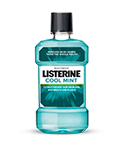WHAT IS BAD BREATH? (AND WHAT CAN I DO ABOUT IT?!)
Having bad breath — whether a chronic problem or something that’s more infrequent — can be embarrassing. When others notice a foul smell when you talk, they’re more likely to keep their distance. This awkward situation can affect everything from your private to professional life.
Knowing what bad breath is, how it is caused, and how to treat bad breath before it turns into halitosis can ensure that your friends and colleagues aren’t kept at bay. But what if you’re unaware you even have a problem? Knowing the signs of bad breath, the causes (and how to treat them) are all fairly straightforward.
SYMPTOMS OF BAD BREATH
The signs of bad breath are detectable by others even before the person who is experiencing it. Your close ones may also tell you about the symptoms of bad breath. The most common symptom is a foul smell coming from the mouth. The unpleasant odour is unbearable to stand, making the person uncomfortable, causing anxiety. The bad odour depends on the source, which is causing it. Below are other symptoms of bad breath:
Persistent dry mouth
Change in taste
White coating on the tongue
Build-up around the teeth
Experiencing post-nasal drip
Frequent clearing of the throat
These symptoms often occur when you are fasting, dieting or eating food with strong odours such as onion and garlic. The intensity of bad breath may differ during the day. Many people tend to ignore bad breath initially, and the symptoms become worse, turning it into Halitosis. Handle the bad breath soon before it turns into a chronic odour problem.
10 Reasons Why You May be Suffering from Bad Breath
There are a number of reasons that your breath may be smelling a lost less sweeter than usual. Here are the most common reasons for bad breath:
1. Poor Oral Hygiene: this leads to harmful bacteria being left on the teeth, gums and tongue. These bacteria can produce sulphur compounds, leaving breath that can smell like rotten eggs. The structure of the tongue provides grooves that may harbour bacteria. These may create an environment where microorganisms are well-shielded from the flushing action of saliva. Recent studies implicate the upper side of the tongue (known as the dorsum) as the primary source of these compounds, both in patients with gum problems as well as healthy individuals.
2. Gum Disease: this causes swelling of gums and can exist in places you can’t clean with a toothbrush and floss. Poor oral hygiene leading to dental plaque accumulation is the most common cause of gingivitis, which is the first stage of gum disease. If left untreated, this can lead to a more serious condition called periodontitis. The inflammation of the gums creates sources for smelly breath, and plaque-related periodontal disease can also increase the severity of halitosis. Read more about gum disease here.
3. Cavities: besides gum disease, cavities can also trap food debris and bacterial plaque, causing halitosis. Ask your dentist how to get rid of halitosis to help prevent cavities. Make sure you use a toothpaste containing fluoride along with a LISTERINE® mouthwash to help prevent cavities. Read more about cavities here.
4. Saliva: another important factor in halitosis is the flow of saliva. The intensity of sulphur compounds is increased because of the reduction of saliva flow reduction (called xerostomia). Saliva has a cleaning effect, keeping bacteria at a manageable level in the mouth and smelly breath at bay.
5. Diet Changes: it’s common to experience bad breath during fasting, if you are on a ketogenic diet, or other types of nutritional restrictions that alter your blood sugar and internal pH levels. The effects are known as “ketoacidosis” and smell quite pungent. Skipping meals and fluids also reduces the production of saliva in the mouth leading to dry mouth — a common cause of bad breath.
6. Diabetes: ketones in the breath of diabetics can cause a sweet-smelling odour to come from their mouths. When this happens, it usually means their blood glucose is imbalanced. Talking with your dentist and doctor can help determine the cause of bad breath, depending on the way your breath smells. For more information on the link between diabetes and oral health click here.
7. Gastrointestinal Problems: a “rotten egg” smell could signal that stomach acid is being refluxed into the throat or in some cases, as far as the mouth, signaling gastroesophageal reflux disease (GERD) or simply, acid reflux.
8. Lung Disease or Infection: an illness such as pneumonia, bronchitis, or lung cancer can change the way your breath smells when you’re exhaling, making it noticeable to other people.
9. Sinus Infections and Allergies: a post-nasal drip of congestion running down your throat will cause bad breath. If your halitosis is in conjunction with congestion or a runny nose, the two are likely linked.
10. Dehydration: not getting enough water or being on medication that dries you out (such as decongestants or allergy medication) can also alter your sense of taste and the way your breath smells.
WHEN TO SEE A HEALTH CARE PROFESSIONAL FOR BAD BREATH
If your symptoms persist even after taking all the possible measures to eradicate bad breath; it's time for you to visit your dentist. It is essential to diagnose the cause of consistent bad breath. Though it is not life-threatening, chronic bad breath can be a signal of an underlying disease such as diabetes, sinus infection, gastrointestinal disorder, liver or kidney ailment. Hence, timely dental check-ups and treatment are necessary to manage bad breath. If the source of bad breath is a gum disease, you will need to check a specialist.
Keep a check on the food items you consume throughout the day and update your dentist about the same. If you have had a surgery or illness in the past, inform your health professional as it will help him/her to suggest the treatment for bad breath accordingly. Visiting a dentist is a nightmare for many patients. However, for bad breath problem, one should not worry about painful procedures. Dental medications, professional cleansing and following oral hygiene standards can reduce your visits to the health care professional.
IS THERE A WAY TO PREVENT BAD BREATH?
Treating bad breath is not that difficult. Practice oral hygiene every day, and you will see the symptoms fading away. Here are a few simple tips to keep your mouth fresh and combat bad breath:
▪ Maintain good oral hygiene
The best treatment for bad breath is to prevent it! Oral hygiene and great daily home care is the first place to start. Practice thorough brushing at least twice a day. Next, floss around each tooth, gently reaching below the gumlines.
Then, clean your tongue from back to front, using a tongue scraper or a toothbrush with a tongue cleaner. Finally, rinse with an antimicrobial mouthwash to eliminate any remaining bacteria in the hard-to-reach areas of your mouth. Also remember to schedule a preventative dental cleaning with your dentist at least twice a year (every six months.)
▪ Quit Smoking and Tobacco
It can damage your gums and stain teeth, causing bad breath and cancer in the long run.
▪ Avoid Intake of Acidic Food and Beverages
If you frequently face digestive problems, prevent yourself from consuming food and drinks that lead to acid reflux. It is one chronic condition that causes severe heartburn and chest pain. Bad breath is one prominent symptom for those having acid reflux issues. Onion, garlic, alcohol, coffee, fast food, chocolates should be consumed in limited portion, as it can trigger acid reflux.
▪ Increase Water Intake :
Consuming plenty of water at regular intervals produces enough saliva in the mouth, leaving no scope for dry mouth and foul smell.
▪ Sugar-Free Mints :
Chewing gums with sugar invite bacteria in the mouth that can initiate tooth decay and bad breath.
▪ Visit your Dentist :
Regular dental check-up can prevent tooth decay and cavities formation in the mouth, preventing bad breath.
HOME REMEDIES FOR BAD BREATH
Bad breath can be easily treated with a little caution and adding some home remedies to your regular dental regime. Since ancient times, home remedies have been effective in treating various ailments. So, treating bad breath is no rocket science. Burst that thought of rushing to the dentist for a small oral issue like bad breath. Here are some simple home remedies ready to wash away your bad breath:
▪ Natural herbs and spices like fennel seeds, cinnamon, cloves, parsley, basil, peppermint are aromatic. Chewing these spices and herbs post-lunch or post-dinner in limited amount prevents bad breath.
▪ Using mustard oil with a pinch of salt for cleaning your teeth is a useful home remedy against the formation of cavities or plaque. Mustard oil contains anti-microbial property that destroys the bacteria formation on gums, making the gums stronger.
▪ Chewing basil leaves or infusing it in your tea is an effective home remedy for treating bad breath. Basil is a leafy green that has an added advantage of being packed with chlorophyll. Chlorophyll is a natural deodorizer that eliminates foul smell from the mouth and also aids digestion.
▪ Chew a small piece of lemon for a fresh burst of citric flavour. The citric acid stimulates the salivary glands and fights bad breath.
▪ Apple cider vinegar consists of natural acetic acid. So, a vinegar mouthwash can cease the growth of germs and bacteria due to its acidic property. Add two teaspoons of white or apple cider vinegar to 1 cup of warm water. Clean your mouth with this solution for at least 30 seconds and see the results.
These useful home remedies are usually safe to consume . So, before you start with oral prescriptions, try any of the above home remedies to get relief from bad breath naturally in just a few days.
Take Away
The bottom line is bad breath can be easily controlled and treated with simple remedies. Brushing or tongue cleaning alone will not do any good. Follow comprehensive oral hygiene inclusive of brushing, flossing, scraping and rinsing to regain fresh breath. Ignoring bad breath can trigger other oral infections. Hence, you need to deal with the symptoms daily and get rid of bad breath. If you are unable to manage the problem yourself, then there is always a dentist’s assistance. The results of a dentist's examination will suggest which treatment is the best.


